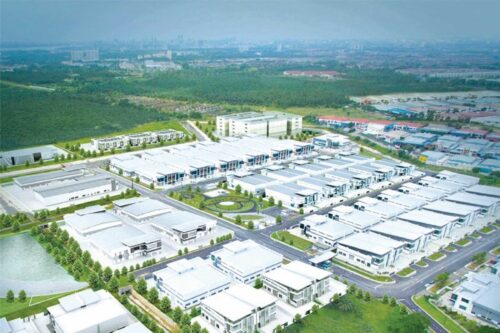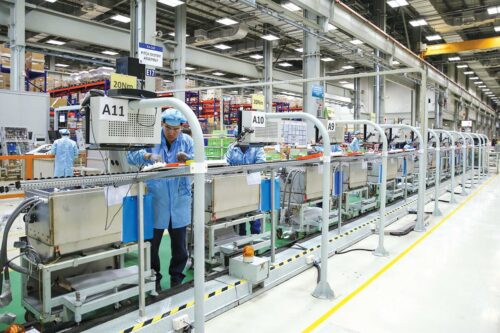A series of bubbles have collapsed. It can be said that 2012 was the peak of the collapse of business trends. This is the consequence of investing in the “herd” style of many years ago. First of all, we can mention the real estate bubble that people want to slowly deflate instead of exploding, causing serious consequences for the economy.
The stock market bubble has also collapsed to the point where it cannot go any further. The VN-Index and HNX-Index have said it all. The image of the activities of more than 100 securities companies also clearly reflects the face of the market. Some financial institutions predict that in the next 2-3 years, the number of these securities companies will only exist at most 5! The explosion of banks in previous years has only revealed the special dangers of cross-ownership this year. The wave of bank mergers and acquisitions is taking place and the face of the Vietnamese banking industry will probably only take shape in the next 3-5 years. A series of state-owned and private economic groups have suffered heavy losses. The bubble of multi-industry and multi-industry corporations has also burst, not “a hundred flowers blooming” like in previous years! Then a series of other bubbles such as minerals, iron and steel, cement factories, hydropower, … and even “investment in football” have also deflated in 2012. The positive point in this story is that after the collapses, the Government and businesses have reshaped their path to return to or find their own core values.
Production and business have seriously stagnated, bad debt is at an alarming level
The number of hundreds of thousands of bankrupt, closed or temporarily suspended enterprises says it all. Going to the industrial zones that were operating strongly before, it is clear that the decline in production is extremely serious. Enterprises are burdened with large debts, high inventories, unemployed workers due to lack of jobs, etc. Not only domestic enterprises but also foreign-invested enterprises. Stories of foreign bosses fleeing appear frequently in the press. Not only industrial production, but also industries that are Vietnam’s strengths such as aquaculture are also in a state of loss and great damage. Many big giants in this industry have gone bankrupt. The trade and service industries are also in a similar situation. Wherever you go in the business world, the most heard words are loss, debt, borrowing, closing down, etc. The economy entering 2013 must face two dangers: increasing bad debts in banks and bad debts of real estate customers will explode.
Exports increase, exchange rate is controlled and trade surplus is achieved for the first time
In the context of an extremely difficult economy, the total export figure for the whole year reached 114.6 billion USD, an increase of 18.3% compared to 2011 and contributed up to 30% to the overall GDP growth of the whole country, which is very encouraging. However, the main part of this export revenue is processed goods, resources and raw materials. Therefore, the value added content in exports is very low. On the other hand, we had a trade surplus of 284 million USD for the first time in 20 years, but that was because consumer demand decreased and production and business activities stagnated, so imported raw materials decreased. And that is also the reason why the USD exchange rate did not increase last year. With a severe economic crisis, consumer demand decreased sharply and inflation and interest rates will inevitably decrease (inflation for the whole year was at 6.81%). At that time, we will have to face a period of deflation that is even more dangerous than inflation.
The government’s microeconomic management is not effective
The government’s focus on ineffective public investment as well as the inconsistent and illogical solution to the problem of controlling inflation and economic growth, and the story of gold trading, interest rates, etc. have reduced the effectiveness of the government’s macroeconomic management compared to previous periods. The bright spot here is that the Prime Minister publicly apologized to the National Assembly and the people for the weaknesses in the government’s management in the past time. However, at the end of the year, the solutions that the government has put forward are not really a good medicine for the economy. It is impossible to save real estate by relying on remittances or by reducing interest rates for home buyers – that is likened to a pain reliever when treating cancer! Now is not the time for the government to introduce stimulus measures, debt cancellation, debt extension, tax reduction or cheap credit, but the time to focus on reform, fight corruption, interest groups and economic restructuring. It is necessary to accept that weak enterprises (including state-owned corporations) must go bankrupt. Only then can we hope to make the economy healthy.
The impact of interest groups is clearly revealed
2012 was the year that most clearly revealed the face and impact of interest groups. Not only were they named, shamed and stopped, but some of the “bosses” in these groups also fell into legal trouble, such as the case of Bau Kien and key figures of ACB bank. Not only in the banking industry, interest groups manipulating other fields such as real estate, minerals, etc. have also been revealed. The impact of these interest groups has greatly affected the economy.
Declining confidence and optimism
Confidence and optimism about the prospects of the economy and the government’s management have seriously declined compared to previous years. This is a very dangerous point in the context of the economic crisis. A simple image of us witnessing a series of restaurants closing due to lack of customers, supermarkets with much lower sales compared to previous years is proof not only of the difficulties of the people but also of the fear of not daring to spend. Once people hold on to their wallets and do not dare to spend, businesses shrink and do not invest in production and business, it will be very difficult for the economy to recover.
The most difficult thing is for workers
A series of businesses are closing or cutting jobs, the currency is increasingly devalued but wages do not increase, the cost of living is increasing, … those impacts have the strongest impact on workers. Stories about workers’ meals and activities have appeared in the newspapers many times in the past year, alarming the current situation of workers.
Declining social morality
Like every economic crisis in the world, it is always accompanied by an increase in social evils. Never before have there been so many stories of robbery, murder, debt default, workers abandoning their children, etc. in newspapers and on the internet as this year. In addition, corruption is becoming increasingly serious, which has had a significant impact on the entire economy.
Making a big M&A wave begin to form
As an inevitable rule, death is always the beginning of a new life. The economic crisis will lead to changes in the owners of construction projects. In 2012, a wave of foreign investors began to jump into Vietnam to seek opportunities for mergers and acquisitions. And when land prices, house prices, and factory prices become as cheap as giving away or the old owners return the projects to the banks, then certainly from 2013 it will be a great opportunity for new owners to jump in.
In short, 2012 is a gloomy year for the economy. However, in any situation, the government or the business community will find a way out. The only problem is how fast or slow it is. To conclude, I would like to quote a famous Dutch architect who has lived in Vietnam for many years: Vietnamese people are like bamboo trees, in storms they are easy to sway but very difficult to collapse, it is the flexibility of bamboo trees that will help them find a way out in the current difficult situation.
Sai Gon, 31/12/2012
Dinh Hong Ky


